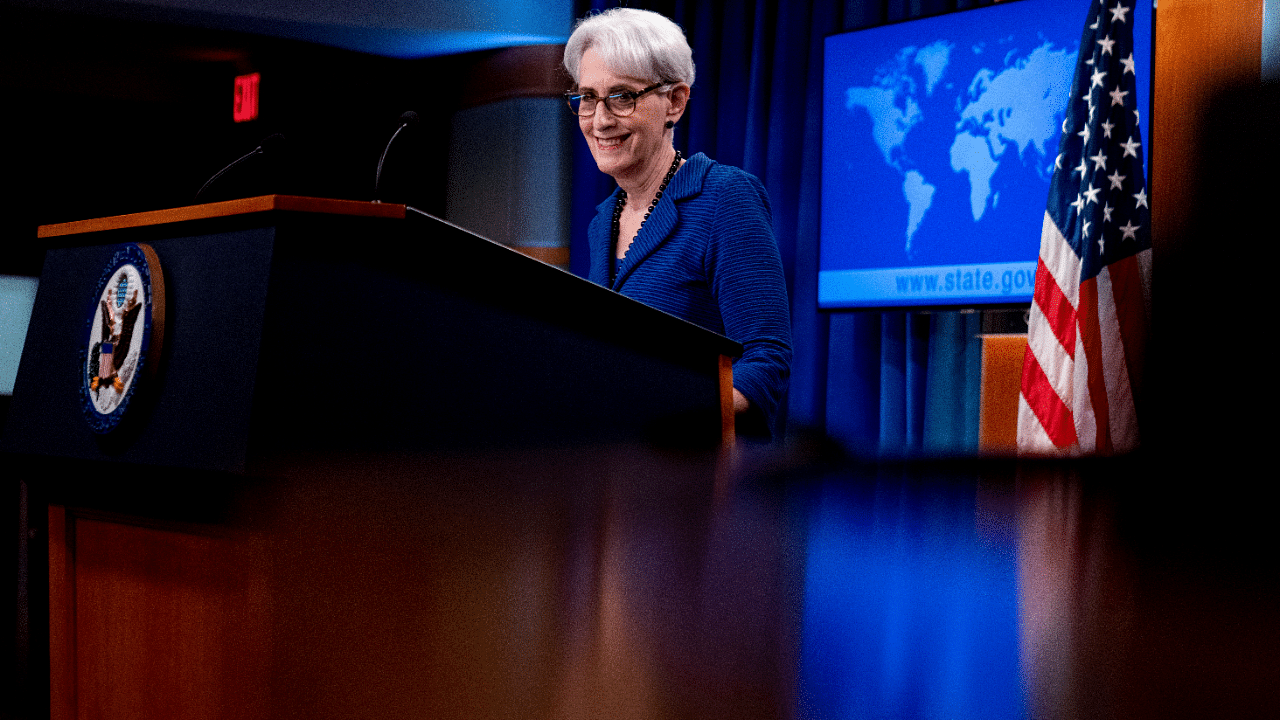
A senior official of President Joe Biden’s administration on Wednesday acknowledged that India’s decision to buy S-400 Triumf missile defence systems from Russia was a “problem” in the relationship between New Delhi and Washington D.C., as it was not in the security interests of anyone.
The official, however, said that the US and India shared a strong partnership and the two nations would hopefully be able to address the issue and resolve it through bilateral talks, just as they dealt with other problems in the relations.
“We've been quite public about any country that decides to use the S-400. We think that is dangerous and not in anybody's security interest. That said, we have a strong partnership with India,” Wendy Sherman, the US Deputy Secretary of State, told journalists in New Delhi.
During her meeting with Foreign Secretary Harsh Shringla in New Delhi, Sherman reiterated the unease of the US over India’s move to buy the S-400 missile defence systems from Russia. “We want to be very thoughtful about the ways ahead, and discussions between our countries try to solve problems and I hope we will be able to in this instance as well,” she told a journalist, who asked her about the possibility of the US imposing sanctions on India for buying the S-400s from Russia.
A source in New Delhi also said that Sherman and Shringla had a discussion on India’s S-400 deal with Russia.
The issue is likely to be discussed during Defence Secretary Ajay Kumar's visit to Washington D.C. for a meeting of the US Defence Policy Group.
The US hinted on several occasions in the past that New Delhi’s S-400 missile deal with Moscow could threaten future US-India defence cooperation and put India at risk of sanctions under Section 231 of the Countering America’s Adversaries Through Sanctions Act (CAATSA).
India in October 2018 inked a $5.4 billion deal to buy five S-400 Triumf long-range surface-to-air missile systems from Almaz-Antey Corporation of Russia and is expecting the delivery to start by the end of this year.
The US Congress had in July 2017 passed the CAATSA to impose sanctions on Russia, Iran and North Korea. The then US President Donald Trump had signed it into law in August 2017 and its scope had been further expanded in October 2017.
Section 231 of the CAATSA mandates secondary sanctions to any nation entering into high-value deals to procure military hardware from Russia.
The erstwhile Trump Administration in December 2020 not only imposed sanctions on Turkey, but also asked “other countries” to take note and avoid striking any big-ticket deal to buy military hardware from Russia.
The Biden Administration continued with the policy and of late warned the Recep Tayyip Erdoğan’s government in Ankara that the US might impose further sanctions on Turkey if it moved to buy more S-400s from Russia.
Sherman on Wednesday said that whether the US would impose CAATSA sanctions on India would be decided by Biden or his Secretary of State Antony Blinken.
Watch the latest DH Videos here:
